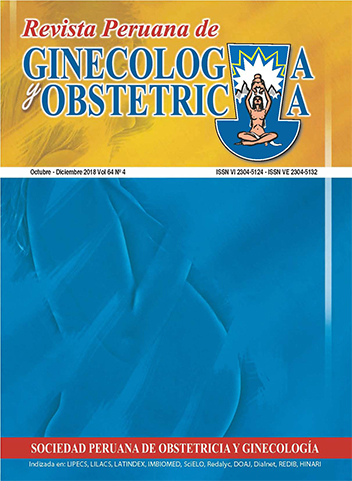Prognostic value of fetal urine beta- 2 microglobuline in vesicoamniotic shunting therapy for fetal obstructive uropathy
DOI:
https://doi.org/10.31403/rpgo.v64i2133Abstract
Introduction. Fetal obstructive uropathy can be treated early in pregnancy by intrauterine vesicoamniotic shunting, immediately after diagnosis by ultrasound, in specific cases with a favorable prognosis in renal function using fetal urine beta-2 microglobulin. Objective: To determine the changes of beta-2 microglobulin in consecutive samples of fetal urine in 48 – 72 hour-intervals in fetuses with obstructive uropathy at 16 weeks of gestation. Methods: We designed a descriptive and longitudinal study, including 15 pregnant women whose fetuses were diagnosed with obstructive uropathy without chromosomal abnormalities, performing vesicocentesis for urinary biometry. Results: Beta-2 microglobulin values were higher than 4 mg/dL in the first vesicocentesis of all 15 cases and decreased to less than 4 mg/dL in 7 cases (46.6%) after the second vesicocentesis. In all cases when beta-2 microglobulin was less than 8 mg/dL in the first vesicocentesis, there was a decrease to nearly 4 mg/dL (maximum 4.3 mg/dL) in the second vesicocentesis. Conclusions: Vesicoamniotic shunting should be performed in all cases of fetal obstructive uropathy when the values of beta-2 microglobulin are less than 8 mg/dL in the first vesicocentesis.Downloads
Download data is not yet available.
Downloads
Published
2018-12-11
How to Cite
Gil Guevara, E., Diaz, R., & Bermudez, C. (2018). Prognostic value of fetal urine beta- 2 microglobuline in vesicoamniotic shunting therapy for fetal obstructive uropathy. The Peruvian Journal of Gynecology and Obstetrics, 64(4), 631–638. https://doi.org/10.31403/rpgo.v64i2133
Issue
Section
Simposio - Cirugía Fetal en América Latina
















